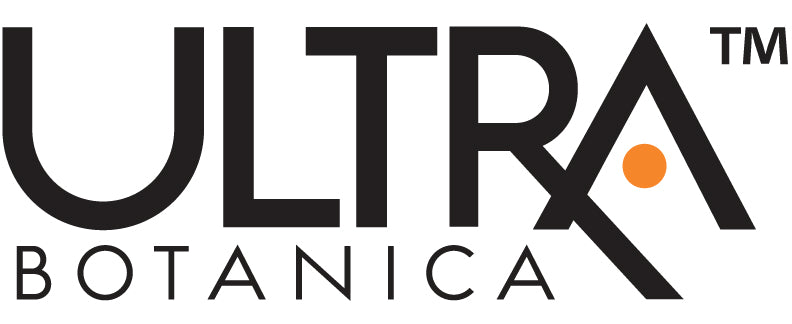You may be hearing a lot of buzz about NAC lately and be asking yourself, what is NAC and what’s all the fuss about?
This powerful antioxidant has gained popularity for its potential health benefits, ranging from supporting liver function to potentially assisting with mental health. But what is NAC, exactly, and how might it be beneficial?
This article delves into NAC, exploring its potential benefits, uses, and considerations for those curious about trying it. Let’s look at the science behind NAC to understand what it is.
What is NAC?
NAC stands for N-acetyl cysteine, a supplement form of the amino acid L-cysteine. Amino acids are the building blocks of protein, essential for various bodily functions.
NAC is considered conditionally essential -- meaning your body produces it naturally but may require additional support under certain conditions like stress or illness.
One of the key benefits of NAC is that it boosts glutathione, often called the "master antioxidant." Glutathione is essential for protecting our cells from damage by free radicals, aiding in detoxification, and keeping our immune system strong.
What is NAC Used For?
NAC’s ability to boost glutathione production in the body gives it potential to support various systems in your body.

NAC and Liver Health
NAC has been used by doctors in hospitals for decades as a treatment for acetaminophen overdose. Doctors give intravenous NAC to people who have taken an overdose of acetaminophen.
This is because NAC helps replenish glutathione in the liver, potentially protecting it from the toxic effects of acetaminophen poisoning.
Due to NAC’s antioxidant and healthy inflammation effects, researchers are also investigating its potential benefits for other liver conditions.
NAC and Cellular Health
NAC dietary supplements help support cellular health by serving as a precursor to glutathione, one of the body’s most important antioxidants.
Glutathione is essential for neutralizing free radicals, which can trigger oxidative stress and damage important parts of our cells, such as DNA, proteins, and lipids.
By boosting glutathione levels, NAC helps protect cells from oxidative damage, thereby preserving their structure and function. This helps keep cells healthy and functioning at their best for long-term well-being.
NAC and Respiratory Health
NAC supports lung function by thinning the mucus that can clog airways, making it easier to breathe. This may alleviate symptoms like wheezing and coughing.
For people dealing with chronic obstructive pulmonary disease (COPD), studies show that NAC could help reduce symptom severity and flare-ups.
It's also beneficial for people with conditions like chronic bronchitis - a long-term condition that affects the airways that carry air to the lungs. This is great news if you're looking to support clear airways, particularly during cold and flu season.
It's also been suggested that NAC could be helpful for conditions like cystic fibrosis, asthma, and even sinus infections, but more research is needed.

NAC for Immune Health
NAC has been shown to regulate the immune response. It boosts immune health through its potent antioxidant properties and its role in replenishing intracellular glutathione levels.
By reducing oxidative stress, NAC helps protect immune cells from damage and maintains critical immune functions.
NAC for Mental Health Conditions
Emerging research suggests that NAC may impact mental health by regulating glutamate, a neurotransmitter in the brain.
NAC influences glutamate levels in the brain by controlling the cystine-glutamate antiporter, a protein transporter that regulates the exchange of extracellular cystine (from NAC) for intracellular glutamate.
NAC provides cystine, which enters cells and is converted to cysteine, a precursor for glutathione synthesis. As cystine is taken up by cells, glutamate is released into the extracellular space.
This regulation is important because glutamate is the brain's main excitatory neurotransmitter and is crucial for learning, memory, and other cognitive functions.
NAC's influence on glutamate levels has sparked investigations into its role in various brain conditions such as OCD, schizophrenia, bipolar disorder, and addiction.
While still in early stages, this mental health research shows promise.
However, excessive glutamate can lead to excitotoxicity, a condition where neurons are damaged due to overstimulation. By keeping glutamate levels in check, NAC might help protect neurons from damage and support overall brain health.

Other Potential NAC Uses
There's even more to NAC's potential—these areas are showing encouraging promise as well.
Fertility Support
NAC may have positive effects on both male and female reproductive health. Oxidative stress can harm sperm quality, potentially impacting fertility. NAC, as a potent antioxidant, might help counteract this.
Some research shows that NAC can improve sperm count and motility. Early research suggests it might also be helpful for women going through fertility treatments, especially those with polycystic ovary syndrome (PCOS).
Further research is needed to fully understand the benefits of NAC in relation to fertility, particularly its impact on oxidative stress and sperm health in males.
The optimal dosage and duration of NAC supplementation for maximizing fertility requires further study, as does whether NAC offers added benefits in conjunction with fertility treatments for PCOS or if it's equally effective when used alone.
Glucose Management
When we eat, our bodies break down carbohydrates into glucose (sugar), which enters our bloodstream. Insulin helps our cells absorb this glucose for energy.
NAC has shown some potential in animal studies for influencing insulin sensitivity. Studies suggest that NAC might help improve insulin sensitivity, meaning the body could use insulin more effectively to manage blood sugar levels.
We need more research to see how effectively NAC helps manage blood sugar levels.

Cardiovascular Health
NAC has shown potential in promoting heart health through its antioxidant properties.
For instance, it may support heart health by protecting against oxidative damage. In one study, NAC, when paired with green tea, was found to reduce cellular damage linked to LDL cholesterol.
NAC might help manage blood pressure, thanks to its antioxidant effects and its ability to boost nitric oxide, a molecule that relaxes blood vessels and improves circulation.
By reducing oxidative stress, NAC also helps protect the endothelium—the inner lining of blood vessels—which is key to supporting overall vascular health.
NAC is sometimes mentioned as a possible support tool for recovery after heart surgery. While a couple of studies hint at this possibility, more robust research is needed.
What is NAC Not Suitable For?
It’s important to note that NAC supplements are not suitable for everyone and may interact with certain medications.
People with bleeding disorders or those on blood-thinning medications should use caution. This is because NAC could further slow down blood clotting.
Before adding NAC to your daily health routine, talk with your healthcare provider to ensure it's right for you.
Dosage and Side Effects of NAC Supplements
NAC dosage can vary, but the generally accepted daily dietary supplement recommendation is 600–1,800 mg. Start low and gradually increase if needed. Always consult your doctor before taking NAC.
Most people tolerate NAC well. But some may experience mild side effects, especially with higher doses, which can include:
- Nausea
- Vomiting
- Diarrhea
- Stomach upset
NAC might interact with some medications, so it's crucial to have an open and honest discussion with your doctor about your medical history.
A 2021 literature review indicated that for most clinical trials, NAC was used for specific treatment goals lasting 6 weeks to 6 months.
How Ultra Botanica Uses NAC
At Ultra Botanica, we harness the power of non-dairy NAC as a protein transporter that your body will recognize and readily absorb!
You can find NAC in our UltraCür® Advanced, UltraMetabolic™, SenUltra™, UlltraQüercetin™, and ÜltraDefense™. NAC supplements should be taken with plenty of water and a little food.

FAQs about What is NAC
What are the best food sources of cysteine?
While NAC itself isn’t found in food, you can get its precursor (the amino acid L-cysteine) from high-protein foods. Some examples of foods high in L-cysteine include chicken, turkey, yogurt, cheese, eggs, and legumes.
Is it safe to take NAC daily?
There's limited research on the long-term effects of daily NAC use. While it is generally safe for short-term use, consult your doctor for personalized guidance if considering it, especially for long-term use.
Conclusion
So what is NAC? NAC (N-acetyl cysteine) is a potent antioxidant with various benefits, showing promise for supporting liver function, easing respiratory symptoms, and addressing specific mental health concerns.
It is important to approach NAC as a supportive measure, not as a substitute for conventional medical treatment, a healthy diet, or exercise.
With its intriguing properties, NAC might be a valuable tool in your well-being toolkit, in consultation with your doctor.





Share:
Unleash the Power: Discover Fermented Wheat Germ's Benefits
What are Neurotransmitters and How Do They Impact Health?